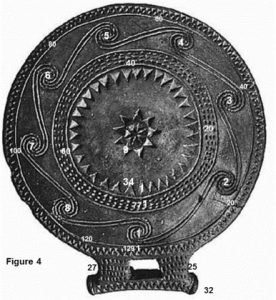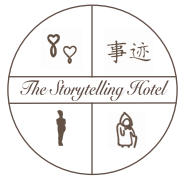Reference of «The Storytelling Hotel» in the book “Tourism and New Media», Edizioni Franco Angeli, Chapter «Tourism and Narrative Identities: The Hotel Where You Started Writing Your […]
Αναφορά του «Storytelling Hotel» στο βιβλίο “Tourism and New Media»
Αναφορά του «The Storytelling Hotel» στο βιβλίο “Tourism and New Media», Edizioni Franco Angeli, Κεφάλαιο «Tourism and Narrative Identities: The Hotel Where You Started Writing Your Story», […]
A Muse of Luxury Hospitality, Signature – “Wow” Stories
*My article A Muse of Luxury Hospitality, Signature-«Wow» Stories was originally published on Luxury Hoteliers Magazine (2nd Quarter 2017 – Page 44) and International Luxury Hotel Association https://www.luxuryhotelassociation.org/2017/07/a-muse-of-luxury-hospitality-signature-wow-stories/ . It […]
A Ritz-Carlton “wow” story
A pioneer hotel chain that adopted this experiential marketing storytelling principle early on is Ritz-Carlton hotels. Ritz-Carlton’s website section Stories That Stay With You, which comes with […]
Recognition by Joe Pine (The Experience Economy)
Distinguished by Joe Pine, co-author of The Experience Economy, as one of the most inspiring ladies in the Experience Economy (published in his personal Twitter […]
My article posted by the author of » L’expérience client»
Glad to see my article posted by the author of » L’expérience client», Laurence Body.
Οδοιπορικό στα συναισθήματα των Ελληνικών Νησιών
Φτάνει Δεκαπενταύγουστος, το αποκορύφωμα της γιορτής του καλοκαιριού. Παίρνεις το πλοίο της γραμμής από τον Πειραιά μαζί με όλα σου τα όνειρα. Οι βαλίτσες μικρές, […]
Το ξενοδοχείο σαν παραμύθι: Αιγίς Σουίτες, Κέα
Κάθε experiential ξενοδοχείο αφηγείται δύο ειδών ιστορίες, την ιστορία που ενσαρκώνει σκηνογραφικά, το πώς δηλαδή “γεννήθηκε” και ποιο ξεχωριστό concept υλοποιεί, και την προσωποποιημένη ιστορία […]
Δ. Σιμόπουλος: Ιστορίες φιλοξενίας και σύμπαντος στον ίδιο ουρανό που έβλεπε ο Δημόκριτος και ο Πρωταγόρας
1992. Ο επίτιμος διευθυντής του Ευγενιδείου Πλανηταρίου κ. Διονύσιος Σιμόπουλος θα βρεθεί σε μία κρουαζιέρα στο πλοίο Stella Solaris μαζί με ένα από τους πρώτους επτά αστροναύτες, τον Scott Carpenter, […]
Το καλοκαίρι όπως το έχεις φανταστεί
Isola d’Elba Να περπατάς μέσα σε ηλιοστάλακτα καλοκαίρια, να συναντάς έναν πιτσιρικά που τον έστειλε η νόνα του να πάρει focaccia για το μεσημεριανό τραπέζι […]
Luxury Hospitality: Planting Stories Into Brains and Hearts

It is true that we are in love with stories. We are «storytelling animals»(Gottschall 2012) and it is our genetic, biological predisposition to create stories. It is in our human make-up.
But what a story does-operationally,behaviorally and transactionally- and even more importantly, why is there our love-affair with stories in life and hospitality?
In storytelling not only the Wernicke’s area (language comprehension,the brain area that intakes information) and the Broca’s area(language processing,the brain area that processes this information) are activated. These are the cerebral areas that are stimulated when we are presented with a bullet Power Point presentation or a data list.
When we tell or hear a story, all brain regions are engaged: the motor cortex(movement),olfactory cortex(scents),auditory cortex(sounds),sensory cortex and visual cortex(shapes/colors) in addition to the language processing parts (Wernicke’s&Broca’s areas).
Stories, moreover, don’t only transfer emotions but they also mold our thinking and shape our actions and belief. Princeton‘s Uri Hasson remarked that «by simply telling a story» «ideas, thoughts and emotions «can be planted into the listeners’ brains.
Storytelling,eliciting affective responses and enabling the emotional connection, is the solely way to instill ideas into others’ minds and hearts.
On this molding power of story, Neuroeconomist Paul Zak’s findings are impressive: In an experiment, two groups of people were asked to give money to a stranger. Before donation, the one group was presented with the video story of Ben, a very ill boy. That group secreted high levels of oxytonin in their brains, neurochemistry that made them 80% more prone to donate money. As Zak articulated: «stories are powerful because they transport us into other people’s worlds but, in doing that, they change the way our brains work and potentially change our brain chemistry.»
Now, let’s think of the last buy we made. Was it a mobile phone or holidays? Surely the buy we did was not based on facts but on emotions (Joshua M. Evans, Founder&CEO EnthusiasticYou!). On the reason, namely, why we and our customers choose to buy something. Our buying decision is based firstly on emotions and then on rational facts that «justify» this decision.
Our decision had been made many days before we entered the tech shop or before booking tickets to California. It was made when we envied our friend’s new cell phone and when we felt happy when our father showed us photos from this journey to USA.
It is what the Vice President of Marketing, IBM, Buck Rodgers, outlined intersecting the Neuroscience of Emotion and Marketing:»People buy emotionally and then justify with logic.»
So, our cardinal goal at hotels is to make our guest invest emotionally in the hospitality experience we offer: to make him feel something through a story of brain and heart.
- Story 1-
The Aegean frying-pan vessels on Syros island:An Ancient Delivery-Day Calculator for pregnant women

In an insightful study conducted on the Aegean frying-pan vessels,the results of which were presented at the 21st international conference of the SEAC (Société Européenne pour l ‘ Astronomie dans la Culture),it was found that a probabilistic interpretation of their use is their functionality with respect to the calculation of the woman’s delivery day.
Dated back to 2700 BC, the one of them bears incised decoration comprised of triangles and dashes organized into four circles.
The pregnant woman noted with a color at the base of the vessel with the 32 triangles her menstrual cycle. In 32 days she would be able to know if she was pregnant.
The interior of the frying-pan vessel has nine stars representing the nine months of pregnancy. The menstrual cycle is on average 28 days. The woman counting the base of the vessel that had 32 triangles exceeded by far the 28 days. Completing, therefore, 32 days she knew that she was pregnant. Then, she moved to the inner circle and colored the 32 days and continued to stain until the filling of the 34 triangles, painting afterwards the next 231 spots of the 3 external cycles (each cycle had 77 spots, so a total of 231 points). When all the spots had been painted, the delivery day had arrived (Logotypos.gr 2015).
How I used it:
In a 5-star hotel where I worked, I offered this treasured information to a pregnant woman. I printed this frying-pan vessel wrote this story of the use of the frying-pan in antiquity as delivery day calculator and noted her day of pregnancy; an unforgettable emotional hospitality experience replete with personal meanings.
- Story 2-
A story of brain and heart in luxury hospitality and destination management is beautifully articulated by Nanos Fireworks too. Pavlos Nanos, universally recognized Pyro & Special FX director (participation in Athens 2004 Olympic Games, TomorrowLand etc and 8 first international awards), highlights culture and social meanings in the sky through fireworks choreographies. This happens with pyromusical shows and the «pyrotechnic mapping», allowing him to design, with high accuracy, words, letters and shapes through 3D pyrotechnic pixels. In 2014, Pavlos through a magical theatrical performance of immersion with fireworks, passed his own message for social crisis, poverty, war, leading his 150,000 spectators to a «catharsis» and inspiring «wakeful dreams». The use of shapes in that pyro allegory and Barthesian semiology was impressive: a sad face turning into a smiling one.
In this vein, Pavlos Nanos leverages the attention of pyrotechnic stories as an innovative memorable experience generator to lodge a hospitality encounter in traveler’s memory and heart.
Besides, people come to destinations and hotels to live such a story.
Moreover, he, persisting in uniqueness, cognizes each fireworks show as the visualization of a signature story: Once a wedding couple asked him to paint in the sky a trefoil (logo of a Greek football team) as they had met in the football stadium; another example of the importance of not doing «marketing» but «customering»,an idea by Joe Pine and the very essence of Luxury Hospitality.
Thus, he maps his pyro performances as a theater (theatron) in its first, ancestral, ancient Greek meaning as the site where events take place and responds to the betting challenge of synaesthesia and «evocative stimuli», namely what fires up the emotional chord leading to reflection, persuasion, decision and action, that is the intention of (hospitality) art as «embodied meanings» (Danto). Besides, we «are not thinking machines that feel; rather, we are feeling machines that think»(Antonio Damasio).
In a nutshell, such personalized narratives epitomize how luxury hospitality market can create value that builds emotional commitment with the brand. And these are stories that instill the most beautiful rule of Luxury Hospitality and life:»we are beasts of emotion more than logic. We are creatures of story, and the process of changing one mind or the whole world must begin with «Once upon a time» (Gottschall).

Αφήστε μια απάντηση